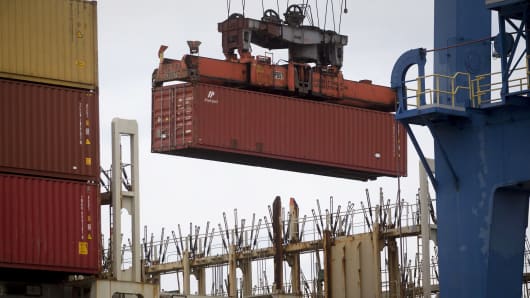Trade agreements have their detractors — those who contend they hurt American workers by lowering wages and offshoring jobs. But these naysayers fail to see the bigger picture. In today's globalized world, participating in the global economy isn't a choice; it's an inevitability. We shouldn't be trying to put up barriers to trade; we should be breaking them down.
Read MoreWhy the US won't have OPEC to kick around in 2016
Ultimately, any legislation that supports American exports will enable U.S. businesses and the jobs economy to grow. The TPP and TTIP eliminate barriers to trade that have long impeded American businesses' international growth and strengthen opportunities for the U.S. not only overseas, but here at home as well.
The biggest objection from opponents of free-trade agreements is that the deal is an attack on American labor because of flawed trade deals of the past and overblown concerns about import competition. However, global trade has been shown to generate jobs at home, not replace them. According to a recent report from the National Retail Federation, global trade supports close to 6.9 million U.S. retail jobs. Selling internationally is becoming a best practice for U.S. businesses, and facilitating more exports through trade treaties like the TPP and TTIP will only create more job opportunities at these companies.
These trade agreements benefit the everyday American in another way: inviting more merchandise and thus wider selection and better value into the consumer economy. Without expensive tariffs, Americans pay less for the products they love and save money. Removing barriers to trade, in effect, brings the global mall to the American consumer.
Read More13 famous logos with hidden messages
Increased product market competition spurs American businesses to invest in technology and people in order to continue to innovate and remain competitive. Again, that leads to more job opportunities, not less.
The TPA package, which includes customs modernization and the TTP and TTIP trade agreements, sets the stage for a new era of global economic growth and diplomacy. If the TPA fails to pass, global trade negotiations will go on without us, and U.S. input and leadership will be left on the cutting room floor. Or, Congress can give President Obama the authority he needs to move these historic trade deals forward, embrace the global economy, and let American businesses and consumers alike reap the benefits. Lawmakers must act with the big picture of America's place in the global economy in mind, and support a trade agenda for the 21st century.


